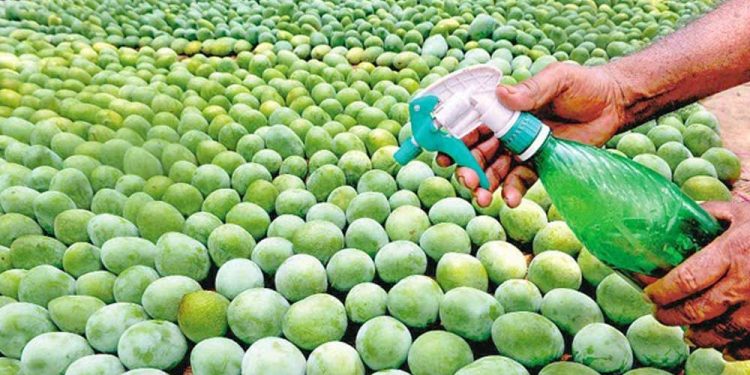adverts
Environmental health personnel of the various Metropolitan, Municipal, and District Assemblies (MMDAs) are being urged to intensify supervision and monitoring of agriculture produce on the markets to prevent ‘forced ripening’ of fruits and vegetables.
This comes as a result of stakeholders within the fruits and vegetables sector raising concerns about the influx of forced ripe farm produce on the market.
During the Ghana Agri-Food Systems Research Dissemination and Policy Forum organized by the Data Repository and Advocacy for Policy in Accra, Prof. Saa Dittoh of the University of Development Studies (UDS) Tamale, in a presentation of his study on “ensuring food safety and quality in Ghana,” highlighted the challenges involved in the production and storage of food across the country.
adverts
He opined that: “there should be food safety testing laboratories in all the regions of the country and simple toxins testing kits made available at the community and farm levels for routine and constant testing.”
“MMDAs, through their environmental health personnel, should increase the monitoring of “forced ripening” of fruits and vegetables to ensure food safety,” Prof. Saa Dittoh added.
For his part, Dr. Kofi Takyi Asante, a Senior Research Fellow at the Institute of Statistical, Social and Economic Research (ISSER) at the University of Ghana, also noted that efforts to feed local industries with agric produce should be scaled up to reduce pressure on the economy.
“It is clear that Ghana’s growth is driven by the services sector but it would be better if agriculture, which used to be the key driver of growth, fed our industries,” he said.
Professor Michael Osei Adu, a Crop Improvement Scientist at the University of Cape Coast, also added that the taste and preference for rice and other non-traditional foods have not significantly impacted the food culture of Ghana as there is high demand for staple crops such as yam and cassava at the various markets across the country.


